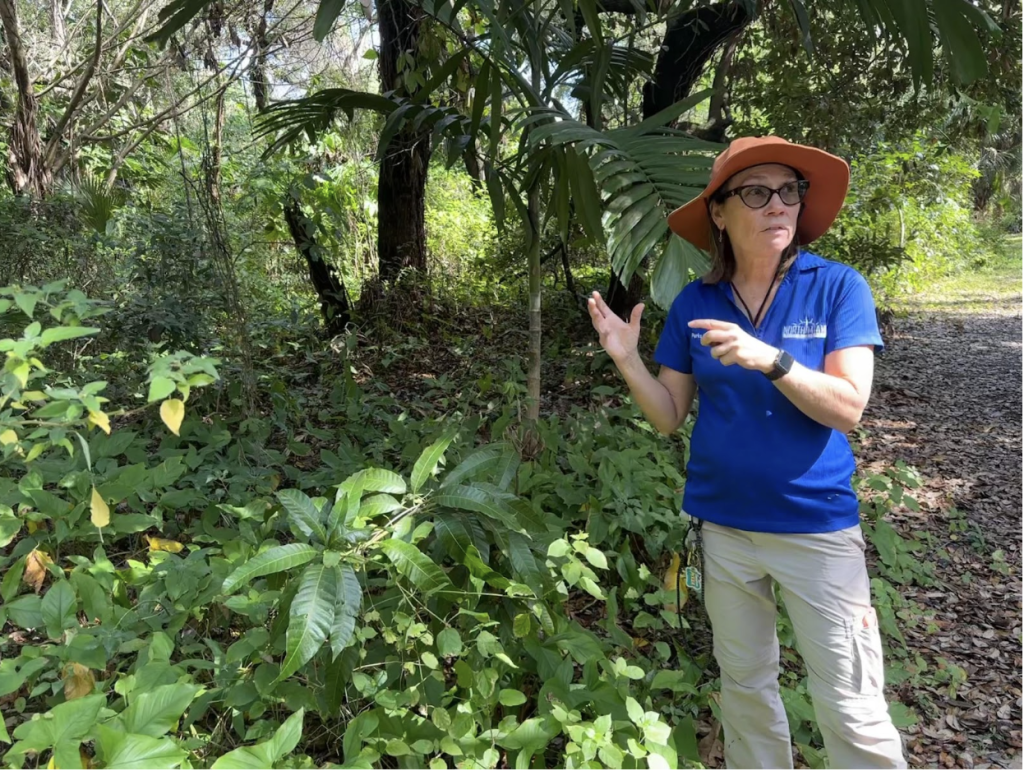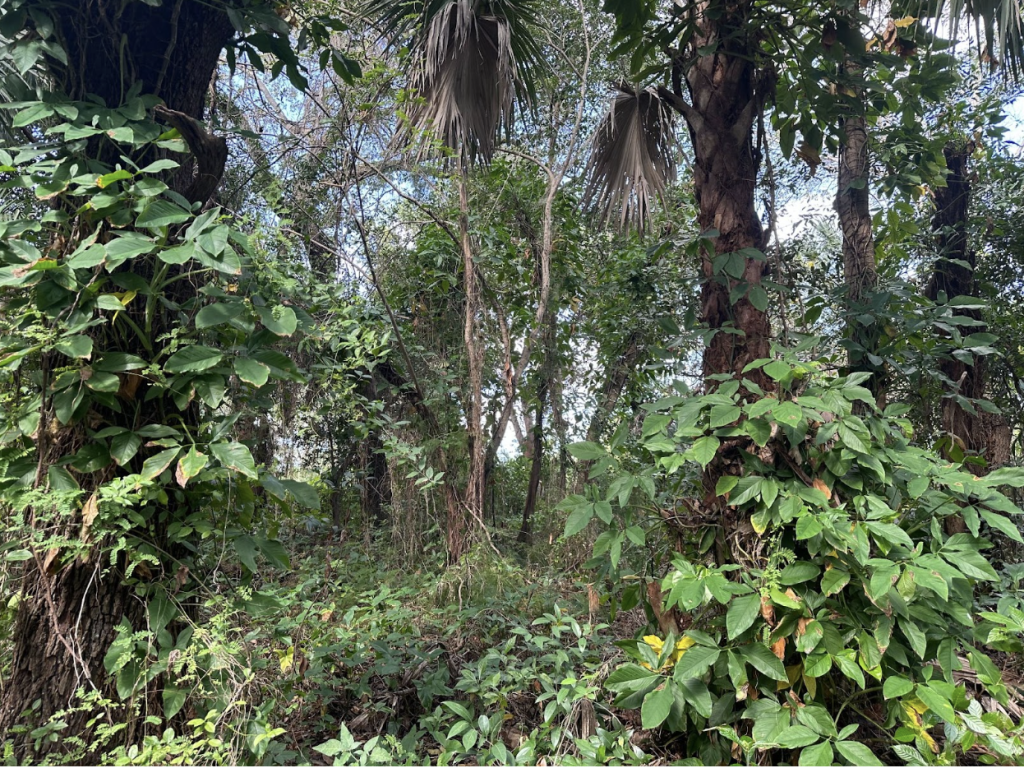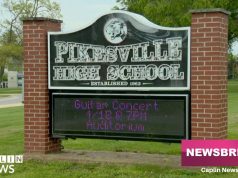Sharp eyes, careful steps, and sturdy shoes are just some of the items you need to bring when visiting Enchanted Forest Park in North Miami. Many of its numerous walking paths have been covered by Syngonium, air potato and many other invasive plants now have no space for your feet to roam freely as invasive plants tangle and block the way.
The palm trees are noticeably coated with Syngonium and dried-up air potato vines dangle from the branches with a pile of debris sitting on the end of the sidewalk.
As invasive plants mark their territory in this 22-acre park the natural wildlife is struggling to compete for resources and is being devoured by the aggressive and fast-growing invaders.
According to a study by the University of Florida, the state currently has over a thousand non-native plant species and ranks at number four in areas most at risk due to invasive species.
“Invasive plants are one of the main causes of extinction for native plants and animals.” Said Lola Heasley, the master naturalist of the park.

Heasley has been working in the park for over 26 years and dedicates her life to the preservation and management of the park. She is currently the only full-time employee at the park where she facilitates educational programs and oversees the removal of invasive plant species.
“When you get these invasive plants that come in, they displace the natives, and they choke everything out,” said Heasley. “And it displaces the animals that are used to living there because it kind of crowds them out and takes their food source.”
Such a species is the Dioscorea bulbifera, more commonly referred to as an air potato that originates from Asia and Africa, was introduced to Florida over 100 years ago after a lab leak. Since then, the air potato has spread rapidly throughout the state, growing up to eight inches a day, and thrives in warm climates.
Enchanted Forest Park has directly experienced the consequences of the air potato as it rapidly grows throughout the summer. The exotic vine produces heart-shaped leaves that will wrap around the native plants and weigh them down. Then it produces potato-shaped balls that eventually fall to the ground sprouting more leafy vines.
“So even though it goes dormant in the winter, and the potatoes are easy to pick up, it will completely consume the park over the summer and everything will be covered in air potatoes,” said Heasley.
To combat the air potato problem Heasley has organized what she describes as “Air potato pick-up parties.” A community event where park visitors, especially children are encouraged to pick up the air potatoes in an interactive game.
In partnership with the U.S. Department of Agriculture, there is the hope of eradicating the air potato by breeding a beetle that will eat the potato ball. The park currently hosts a beetle that only eats the vines, but it is not enough to compete with the spread of air potatoes.
Even with these efforts, the park is in desperate need of daily eradication, and many invasive plants, like the Syngonium, must be removed by hand, a task that is overwhelmingly difficult to do with such a small staff.
The park began bringing in volunteers two years ago and has had over a thousand people participating in clean-ups since then. Gwen Burzyki, a volunteer says there just aren’t enough resources for natural areas.
“There is no place in South Florida that is a natural area that doesn’t need some help,” said Burzyki. There is no place in Florida that is a natural area in South Florida that has enough money to fund help, we depend on volunteers.”

“Because even though it [syngonium] grows very slowly, it has tendrils that come out of the side of the vine.” Said, Heasley. “You have to remove all the tendrils out of the ground. If you leave pieces of it, then it can grow back.”
Despite the threat these invasive plant species pose to native wildlife, many of them can be found in stores. A reality Heasley hopes will change in the future.
“If you go to Home Depot, almost all of the things that we’re eradicating, they actually sell there for people to plant in their yards.” Said, Heasley. “If developers had to use at least 75% native plants the world would be a better place.”
Heasley is hoping for more funding and grants to further the eradication efforts, as well as educate the public and get more volunteers.
To volunteer at Enchanted Forest Park you can visit handsonmiami.org and sign up for their clean-up days every second Sunday of the month or contact Heasley directly to set up a volunteering time at lheasley@northmiamifl.gov or call (786) 255-2995.


































